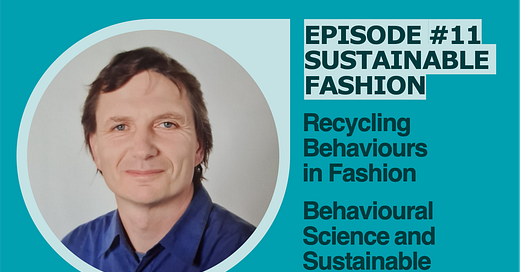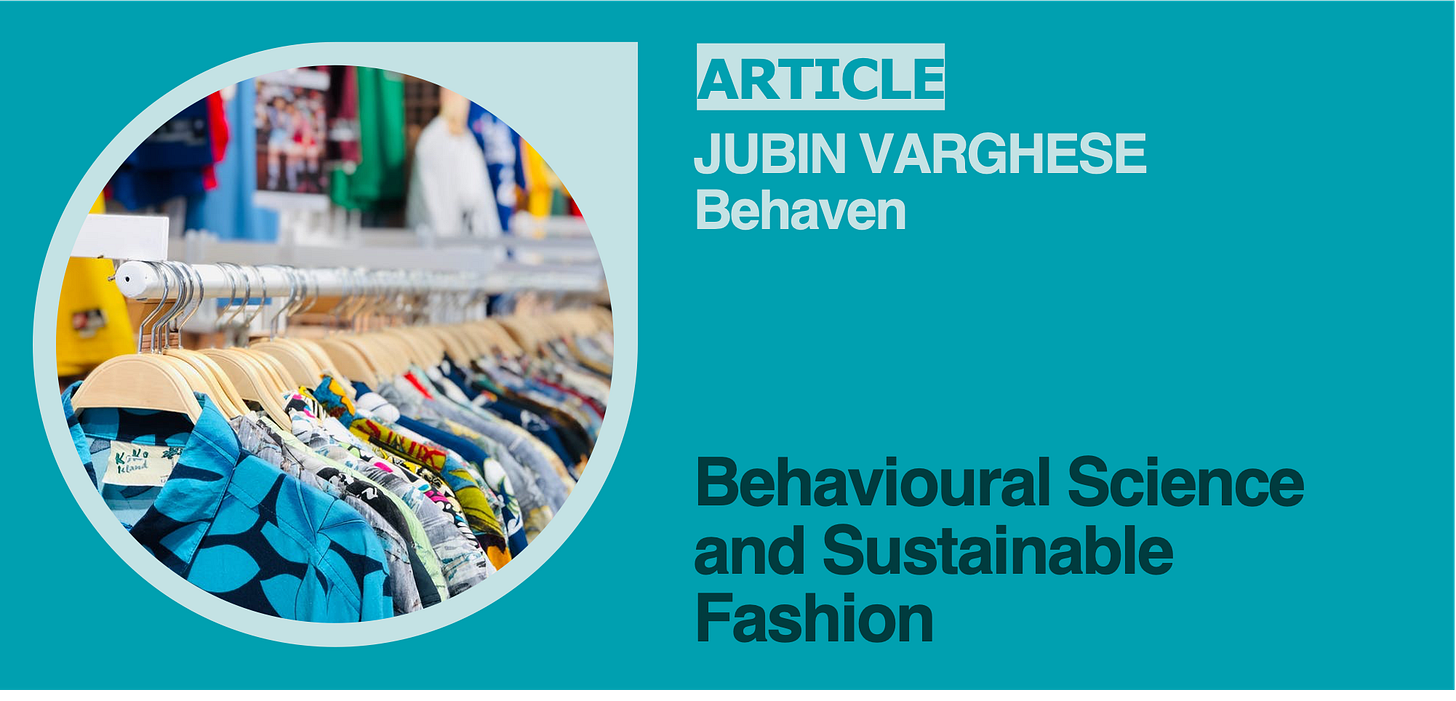GOOD MOVES #11: Sustainable Fashion
Hi everyone,
100 billion garments are sold each year worldwide. Too many of them are produced in countries with a largely carbon-based energy mix, transported along globalised production chains, and left unworn or thrown away.
The fashion industry is one of the major contributors to both carbon emissions and plastic microfibres entering our oceans. To improve this catastrophic situation, a number of fundamental changes are required, like the relocation of parts of the industry and the redevelopment of alteration and repair skills, in order to significantly increase the lifespan of our clothes.
And that includes behaviour change, as discussed with Alan Wheeler: “Buying second-hand clothing is the best way in which people can get hold of clothing that is new to them whilst at the same time reducing overall consumption of new textile products.”
Alan Wheeler is the CEO of the Textile Recycling Association and in this month’s interview, he talks about recycling behaviours in fashion. In addition, Jubin Varghese shares some key takeaways from his internship at Behaven on how to encourage sustainable fashion behaviours.
A key takeout? Less is more.
Enjoy Good Moves and stay sustainable,
The Behaven team
Recycling Behaviours in Fashion
We talked to Alan Wheeler, CEO of the Textile Recycling Association, about the impact of our clothes on the environment and the need to change our consumption and recycling behaviours.
Behavioural Science and Sustainable Fashion
Jubin Varghese, who’s just finished his internship at Behaven, shares some key takeaways from his work on the application of behavioural science in the context of sustainable fashion.
Fashion’s Greenwashing Problem
“The fashion industry has a greenwashing problem…
59% of green claims are misleading or unsubstantiated.
For some of the worst offenders, this is as much as 90%.”
This is how the www.greenwash.com website starts. Mimicking the experience of a laundrette, Greenwash.com showcases the variety of greenwashing tactics brands use to sell their clothes.
The initiative comes from the Changing Markets Foundation, which creates and supports campaigns that shift market share away from unsustainable products and companies to environmentally and socially beneficial solutions.
The website talks about greenwashing as a smokescreen, making people believe positive change is really happening when in reality, fashion’s impact on the planet is only getting worse. It also contains links to further research and articles.
Because the clothes don’t always make the brand...
Missed the Previous Episodes?
Curious to read more about sustainable diets, behavioural insights for climate action or harnessing positive emotions to promote sustainable behaviour change?






